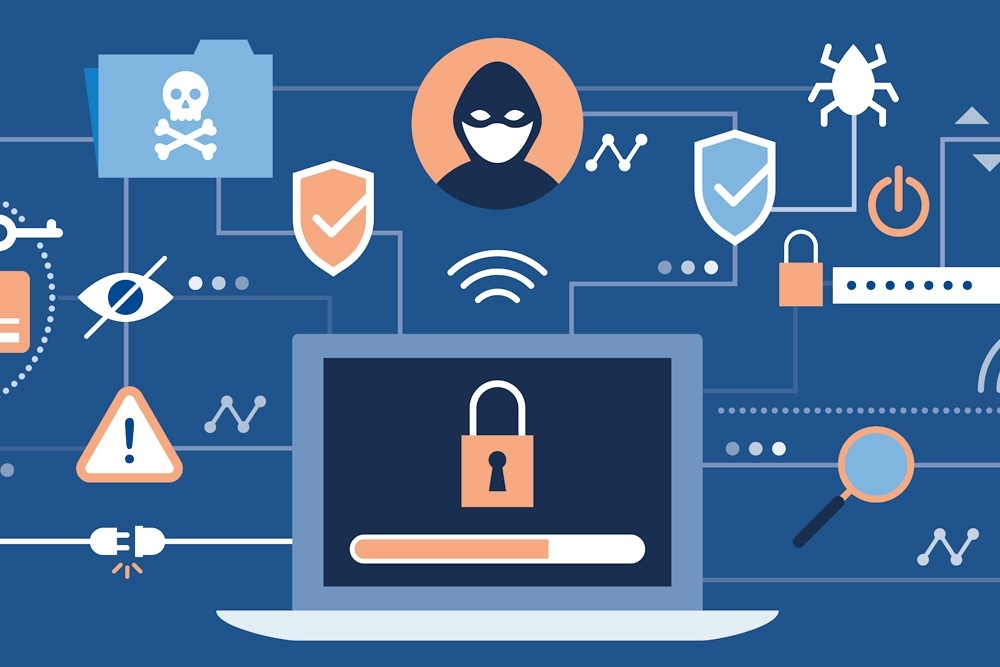
Search engines are able to return millions of results for anything your heart desires. Believe it or not, that's just the tip of the iceberg when it comes to the internet — there are even more places that you don't get to see. When you do visit your favorite websites, you're only scratching the surface of what's out there. The rest is the Dark Web or the Deep Web.
The Dark Web Vs. The Deep Web
The Dark Web and the Deep Web are both areas of the internet that the average user can't access through search engines, but the similarities end there. In order for a search engine to return content as a result, that content has to be indexed. Anything that's behind a login screen, within an intranet, or in a hidden archive is the Deep Web. There's nothing really nefarious about it — if it's content that's meant only for registered users to see, it's part of the Deep Web. Your regular browser can access any part of the Deep Web, as long as you have the right login credentials.
The Dark Web is a set of sites that are hosted on an encrypted network. Regular browsers can't access the Dark Web — it requires a special browser that allows users to hide their IP addresses. Dark Web content is not designed merely to hide important information from prying eyes, it's meant to keep regular internet users away. There's no way to "accidentally" stumble across the Dark Web. It's gated by special, very specific technology.
Who Is Using The Dark and Deep Web?
The Deep Web is meant to keep people out of need-to-know information. If you use your bank's website, the page that shows you your bank balance is part of the Deep Web. A doctor's office with an online patient portal is using the Deep Web. This part of the internet is for anyone who wants the convenience of accessing their information online, while also enjoying the security of knowing only they can see it.
Dark Web browsers, like TOR, are primarily used by people who prefer (or need) to browse the internet without revealing their locations or identities. Citizens of countries with internet censorship frequently use them in order to access content they're normally forbidden from seeing. Unfortunately, the same anonymity that protects these people also protects a lot of criminals.
Since the Dark Web is gated and impossible to access by accident, it's a haven for illegal sales. With the right kind of money, users can purchase anything from drugs, to guns, to other people's identities, to other people. Using the Dark Web for things of this nature isn't a foolproof way to get away with crime, but it does make things easier.
What The Dark Web and Deep Web Are Used For?
Using the Deep Web is as simple as opening your favorite browser and checking your email. The contents of your inbox aren't publicly viewable by just anyone, they need your email address and password. You might be using the Deep Web a hundred times a day, and not even consciously realize it. Using the Dark Web involves setting up a virtual private network and getting an encrypted browser. Completing a transaction involves using some form of untraceable cryptocurrency.
The Dangers of The Dark and Deep Web
The Deep Web doesn't really do any damage — in fact, a lot of businesses rely on it in order to exist. For example, if you log into a streaming service to watch a show, your user page is part of the Deep Web. If you set up a username and password to shop on an e-commerce site, your shopping cart is, too. Operating sites gated by login information is more complicated than a regular, indexed website, but provides a service many customers want. The only time this part of the Internet becomes a liability is when the owners are lax with security.
If hackers and fraudsters are able to gain access to users' private, non-indexed pages within a bank website, for example, that's a very big deal. Interestingly, the Dark Web can cause problems within the Deep Web. Oftentimes, people's identifying information is up for sale — email addresses, bank account numbers, social security numbers, credit card numbers, the works. This means that the buyers can access anything they want that uses those credentials and use them to commit fraud.
It's helpful for both individuals and businesses to know how to browse the Dark Web to see if their information comes up. Knowing what's out there is an important step toward securing that information and preventing fraud.
The Deep Web and the Dark Web are often used interchangeably, but they couldn't be more different. While the Deep Web allows businesses and individuals to access important information online, while also keeping unauthorized visitors away, the Dark Web offers a haven for anonymous criminal activity.
It's important to understand both of these parts of the internet, in order to secure need-to-know Deep Web information and keep sellers on the Dark Web from peddling private credentials to fraudsters.
Roman’s team of in-house analyst investigators receive regular updated training on the latest types of Deep Web information mining and are experts in searching for vital evidence that pertains to legal cases. To request a consultation contact Roman by calling us at 800.422.9032 or by sending us an email.
